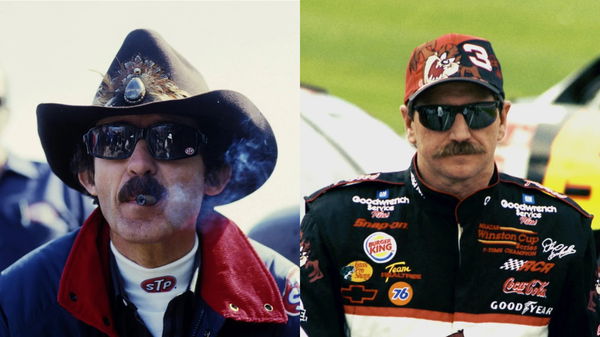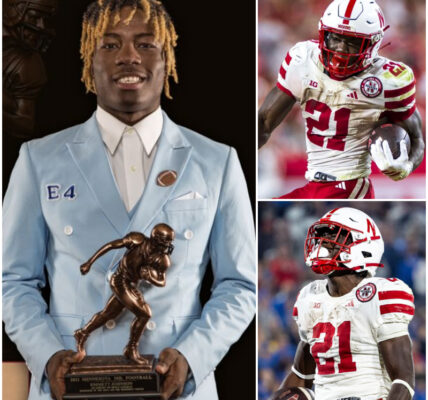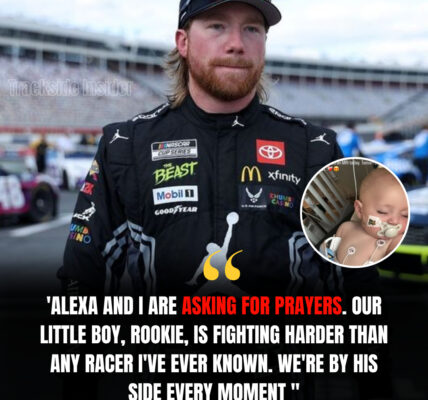“THAT’S NOT RACING™: RICHARD PETTY CRITICIZES TALLADEGA PLAYOFF CHAOS AFTER YELLOWWOOD 500
most respected and iconic figures in the history of the sport—publicly criticized the
style of racing seen during the YellowWood 500 playoff race at Talladega
Superspeedway.
r-etty, a seven time NASCAR Cup Series champion with 200 career victories, did
not mince words when describing what he witnessed.
“When | sat there and watched, it’s still not racing as far as I’m concerned,” Petty
stated, referring to the dramatic drafting packs, chaotic lead changes, and high-risk
fuel strategy games that defined Sunday’s race.
His comments yuickly spread across social media and NASCAR communities,
sparking heated debate among fans, analysts, and even active drivers.

The YellowWood 500 was full of the un redictawility Talladega has .ecome known
for.
Lead swaps occurred almost every lap, teams played dangerous fuel mileage
calculations, and dri.ers strategically formed alliances that shifted constantly.
To many fans, it was thrilling. To others—especially longtirne traditionalists—it felt
like chaos rather than competition.
Richard Petty, ~vho raced during NASCAR’s foundational decades, where
mechanical grip, driver skill, and long-duration racecraft shaped victories, seemed
frustrated with what he sees as a shift toward pack dependency and aerodynamic
manipulation rather than pure driving talent.
“Today, you’re not racing the track, you’re racing the air,” one veteran crew chief
echoed in response to Petty’s remarks online.
“f the draft doesn’t go your way, there’s nothing you can do—no amount of skill
fixes that.”
Petty’’s comments raise a central juestion that has hovered over NASCAR for
years.
What defines real racing?
At Talladega and Daytona—NASCAR’’s two ma,or superspeedways—the current
aerodynamic and horsepower package encourages drivers to run in tightly packed
drafts.
This creates dramatic racing, yes—Dbut also enormous risk.
One small mistake can trigger a multi-car crash involving a dozen competitors.
Fans tune in for the spectacle, but critics argue that the format reduces individual
driver control.
During the YellowWood £GU, several playoff drivers saw their seasons jeopardized
within seconds due to late-race accidents and strategic gambles outside their
command.
The final laps featured cars sputtering out of fuel, drivers being pushed in lines
because they could not move independently, and front-runners losing positions
faster than they could react.
The race ended with a mi.. of triumph and frustration—depending on who the chaos
favored.
For Petty, this gets to the heart of the issue.
In his racing era, a driver could build a lead, maintain pace, and use consistency to
shape the race.

Skill, car setup, endurance, and judgment determined winners.
Now, at Talladega, a driver can run a flawless race and still lose everything if the
draft breaks or someone miscalculates fuel by a half-lap.
Petty isn’t alone in expressing concerns. Several drivers—past and present—have
voiced discomfort with the randomness of superspeedway outcomes.
And while NASCAR has made safety improvements and attempts to fine-tune the
racing package, the debate remains unresolved.
Yet, there is another side to the argument.
wlany fans love Talladega exactly because it is unpredictable. The tension of every
lap. The potential for underdogs to rise.
The excitement of three-wide packs at 190 mph.

The electricity of not knowing who will win until the finish line is crossed.
This tension—tradition vs. modern spectacle—is shaping NASCAR’s identity.
Richard Petty’s comments do not come from anger. They come from legacy.
From someone who deeply loves the sport and wants to see driver skill remain at
the center of its soul.
Whether one agrees with him or not, one thing is certain:
When The King speaks, NASCAR listens.




